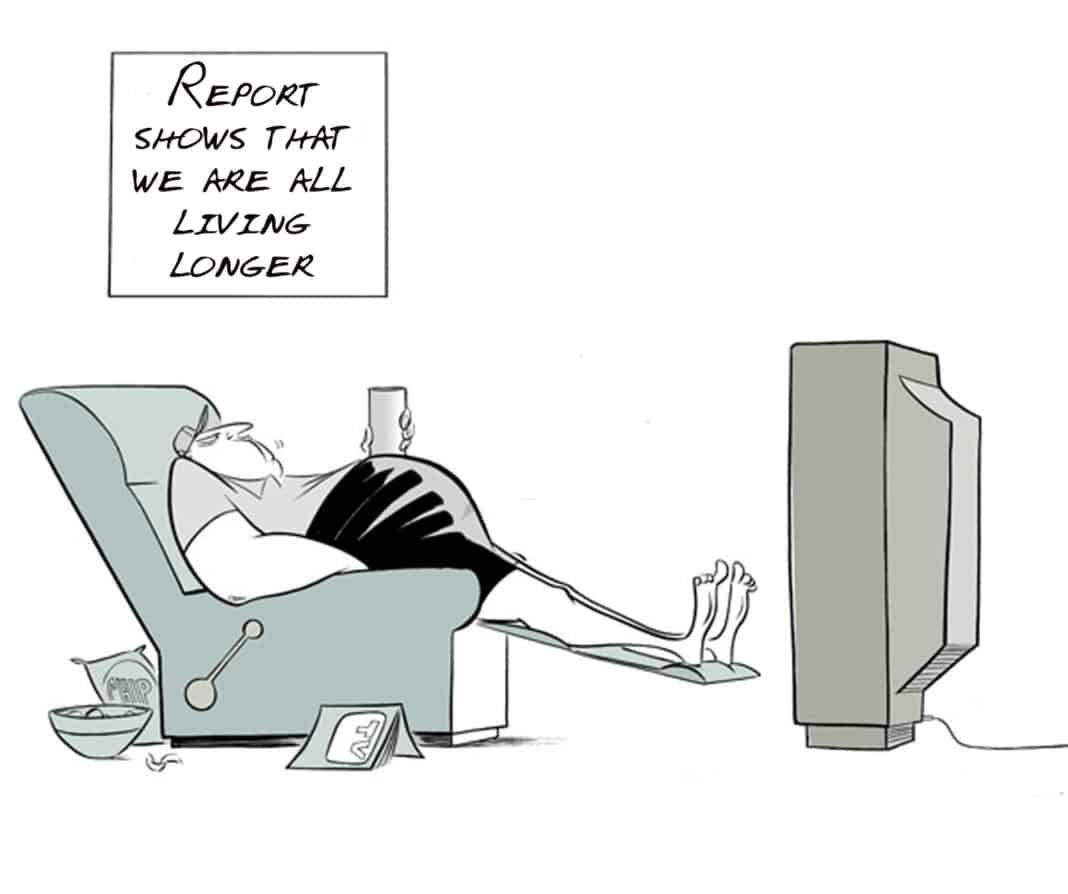Elsewhere on earth, the video recorder was being invented, but not soon enough for Clive James, who for 10 years was the television critic for a Sunday newspaper. Often he had 3 TV sets on at once. “An occupation with the initial appearance of money for jam,” he wrote, “can end in a mental breakdown. Perhaps it did, and I didn’t notice.” (At least I don’t have that problem, as far as I know.)
At various times, television has been called “chewing gum for the eyes,” and “the idiot box.” The playwright Noel Coward famously said, “Television is for appearing on, not looking at,” but Groucho Marx found it educational: “Every time somebody turns on the set, I go into another room and read a book.”
And yet television changed the world, like the revolving wheel three thousand years ago and the revolutionary computer that arrived a mere moment later in geological time. Over time, TV has met with mixed reviews. It was welcomed, curiously enough, by filmmaker Alfred Hitchcock, who declared that television had brought back murder “into the home — where it belongs.”
TV has been a boon for geography teachers, betting shops, sports bars, football fans and Formula One motor racing. Can’t get a ticket for Wimbledon? TV has your courtside seat reserved, provided you’ve paid for your licence. Not able to make it to Monte Carlo this year? No, I can’t believe that, but you can watch the Rally on the idiot box even if you are stuck in the Bahamas.
The telly has also brought the brutality of war into the living room, and given us a ringside seat which even in the living room feels uncomfortably close. “War?” sang Edwin Starr in 1970, “What is it good for? — Absolutely nothing.” And yet dictators still manage to pervade the visual media. Cilla Black, although she was referring to a different aspect, once said, “I humbly apologise for reality TV.”
Someone pointed out that just because your opinions reach halfway round the world doesn’t mean they are any better than when they reached only to the end of the bar. “If a word is half Greek and half Latin,” asked my brother, “can any good come of it?”
There are even examples of television watching itself, or us, so to speak, in the form of Gogglebox, where viewers are filmed as they comment on programmes, or The Royle Family, where actors playing couch potatoes sit and watch TV. Potatoes watching a box, I suspected it might come to that one day.
There is no denying the beneficial effect TV can have at times, in solving crimes or spreading information and advice about the spread of virulent viruses. Better First Jabs then First Dates. We don’t mind Big Brother watching us, as long as he is watching over us as well.
I was glued to the screen during the worst of the pandemic. Constant viewing, I discovered, can drain one’s crystals as effectively as the Klingons ever did to the Starship Enterprise. Binge watching has raised my writing to a new low.





